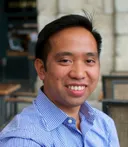How I Learned to Stop Worrying and Choose My Medical Specialty

HONGQI ZHANG/123RF.com
Choosing the right medical career is, like any other form of employment, filled with philosophically wondrous but functionally useless platitudes. The adage “do what you love, and you’ll never work a day in your life” decorates countless commencement speeches and career day addresses. Maybe that works for some jobs. In medicine, that strikes me as a bit backwards.
When I started medical school, I had a good idea that I wanted to focus on treating poor people and provide longitudinal healthcare for families, so I held an early belief that Family Medicine was the perfect career path for me. When pressed by my advisors as to what aspects of Family Medicine appealed to me the most, however, I couldn’t cough up any specifics. What topics within primary care fascinated me? Diabetes? Not particularly. Pediatric developmental milestones? Eh.
The advisors voices grew louder in my head. If I didn’t find any of the topics in Family Medicine devastatingly compelling, would I really consider the daily practice of Family Medicine any different? What topics in medicine actually did interest me? I loved learning about chemotherapeutic pharmacology like the cardiotoxicity of doxorubicin. Maybe three years of Internal Medicine and a Hem/Onc fellowship was the right path for me? Identifying the pneumatosis intestinalis bubbles on a film and correlating it clinically to necrotizing enterocolitis seemed like a lot of fun – maybe Radiology was my calling? There were so many intellectually fascinating avenues to explore, and none of them trailed towards Family Practice.
By the time third year of medical school and clinical rotations rolled around, I anxiously awaited my new possible careers. I couldn’t wait to see where my intellectual interests in Hem/Onc and Rads might lead me. The answer: lots of counseling patients on which nausea medications would work the best, or lots of gentle, murmured dictations in dark rooms, illuminated solely by the glow of vertically oriented computer screens. This wasn’t the entirety of the Heme/Onc or Radiology experience, of course. But as a medical student with little power or responsibility, at this particular point in history, this really described what the days of my attending and resident teachers looked like.
I had already written off Family Medicine as a career possibility before my third year rotation even began. So when I actually rotated through Family Med at a small privately owned clinic in New Hampshire, I was troubled at how much I enjoyed it. The daily schedule could be unpredictable, chaotic, and infinitely interesting. And all of it involved talking.
I love talking. If I’m being generous, I’m an enthusiastic conversationalist; more realistically, I’m an over-talker who dangerously straddles the line of pedantry. This asset/flaw served me incredibly well during those six weeks in New Hampshire. Family Medicine, and primary care writ large, is all about talking and conversations. Communicating with people about their issues, medical or otherwise. Educating patients by meeting them at their particular level of understanding. The Family Medicine day involved running from room to room, completing DOT physicals or stabbing kids with DTP vaccinations, while engaging in all sorts of conversations. If I was lucky, I got to learn all about what it’s like to retire from being an airline pilot for United Airlines, or the latest argument a patient was having with her estranged father. These conversations became more captivating if I ever had the chance to continue them at follow up appointments two weeks later.
My realization that I wanted to have a career made up of those Family Medicine days probably shouldn’t have been that revelatory, but it was. I circled back to Family Med for reasons that were counter-intuitive to me: it wasn’t that I was pursuing medical topics I loved, but that the majority of the days involved performing an activity I loved the most. This ought to be a consideration for anyone pondering a future medical career. If you belong in the OR, make sure the surgical specialty you pursue spends the most time in the operating theater and the least amount of time in the clinic, or it could make for a long few decades.
Family Medicine wasn’t, and isn’t perfect, to be sure. The biggest problem with primary care as a whole has to be the pure weight of administrative burden – other fields don’t strain nearly as much under the paperwork. Even then, the positive aspects of Family Medicine outweigh the downsides, and the ratio works for me.
My personal feeling goes something like this: most people who graduate medical school can intellectually handle most medical topics, and furthermore, can find something intellectually stimulating about any topic in medicine. Using intellectual interest as one’s initial barometer might not be the best first step. Think about what each field’s day-to-day looks like, see if you want yours to look the same, and trust that you’ll find plenty to engage you within that field.
Find what type of day you really want, and you’ll find what field you love in medicine.
Related Posts
